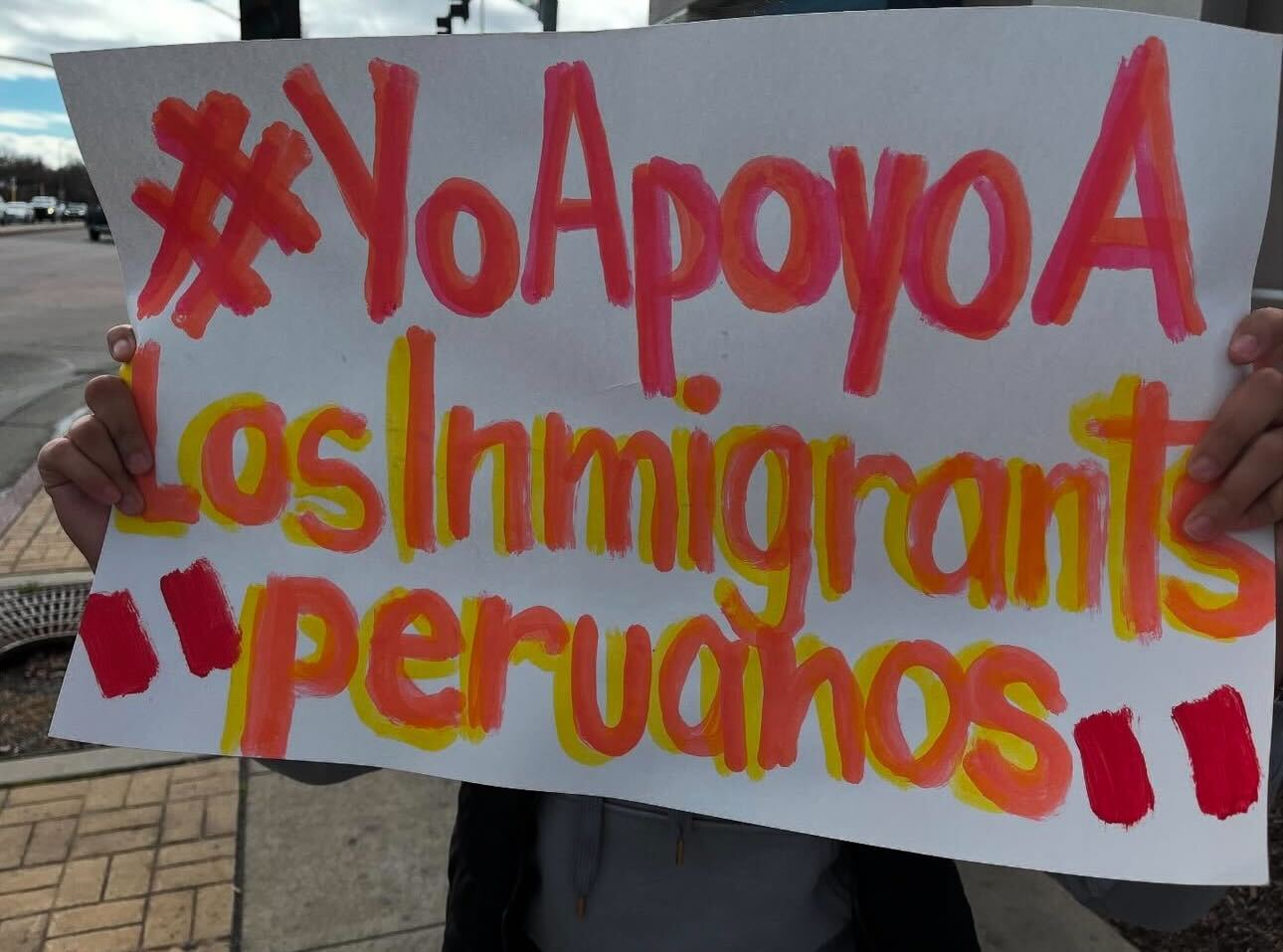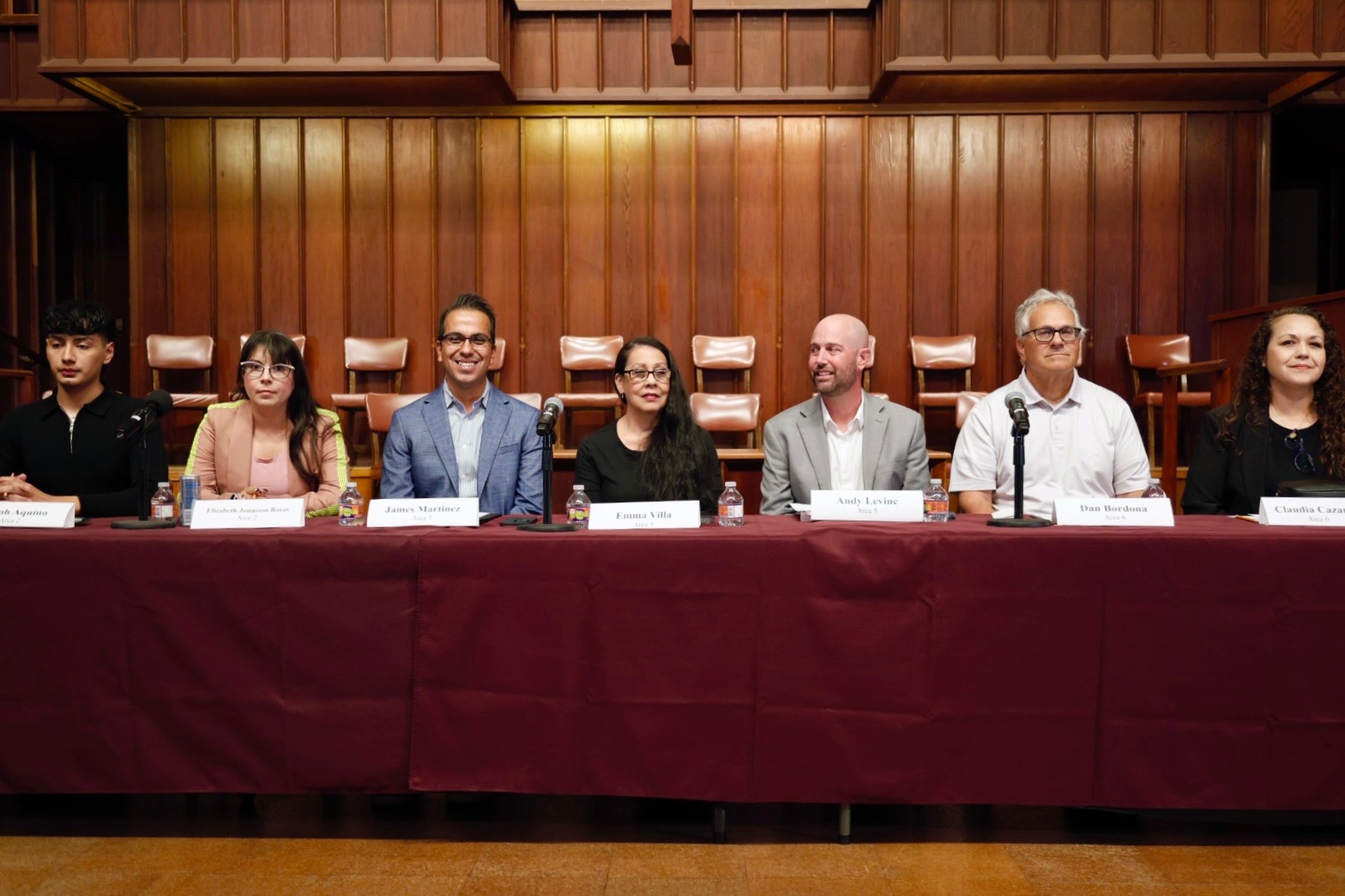By Heather Somerville – The Fresno Bee
In a West Oakland classroom, a group of high school students is reinventing the city. Their task: Figure out how to scrub the violence from Oakland’s hard-knock streets by 2022.
“Peace Land,” they call it.
They know it’s an impossible task.
“We’re actually dreaming,” said Eric Butler, a counselor who teaches the class, “because most of our kids have been taught to stop dreaming.”
This is Oakland Unified’s Ralph Bunche High, a last-chance continuation school where most students have spent their short lives in and out of school and jail, battered by the violence and poverty that surrounds them.
The exercise is part of Butler’s conflict mediation class, one component of the school’s restorative justice program that has reduced suspensions by about 50% in the past couple years. Restorative justice is a process that works to improve student behavior through mediation and building trusting relationships between adults and kids.
This year, Butler is determined to have zero suspensions. Never mind the iron bars across the windows, security guards blocking the school entrance and police officers who stroll the hallway. Never mind that on this Tuesday morning after Labor Day, students came to school with stories about who they beat up, who beat them up, the drugs they did and the drugs their parents did over the weekend.
“We don’t have a kid problem, we have an adult problem,” Butler said. “We should feel bad about it enough to do something about it.”
Oakland Unified’s restorative justice program has gained national attention after suspension rates dropped by 40% at some schools and almost 90% at others.
Oakland Unified passed a 2010 resolution supporting restorative justice and began working with nonprofit Restorative Justice of Oakland Youth to get programs off the ground. Butler, who works for RJOY, is among the counselors who have helped start programs at 13 schools.
Fresno Unified, in its own effort to repair chronically high dropout and suspension rates, has paid close attention. Fresno may be ready to dream up its own “Peace Land.”
The district is inching toward a restorative justice model that advocates say could improve graduation rates, give more youth a shot at college, and begin to address some of Fresno’s social and economic plagues. The change will be slow and costly, and it comes with risks. Critics say violent schools could become more unruly, putting teachers and students in danger and forcing dropout rates to climb ever higher.
But the alternative, say some students and educators, is more of the same — a discipline policy that fuels anger and frustration in schools, pushes struggling students to drop out, perpetuates racism and sends the message that if you mess up, just once, you’ll be forever labeled “the bad kid.”
Done correctly, restorative justice is not a matter of ending suspensions, according to Fresno Unified Superintendent Michael Hanson. Nor should it be seen as “soft on misbehavior.”
“Kids don’t get to bring guns to school,” he said. “They don’t get to bring drugs in a package for sale to school.” Those types of offenses “will be dealt with swiftly and severely.”


